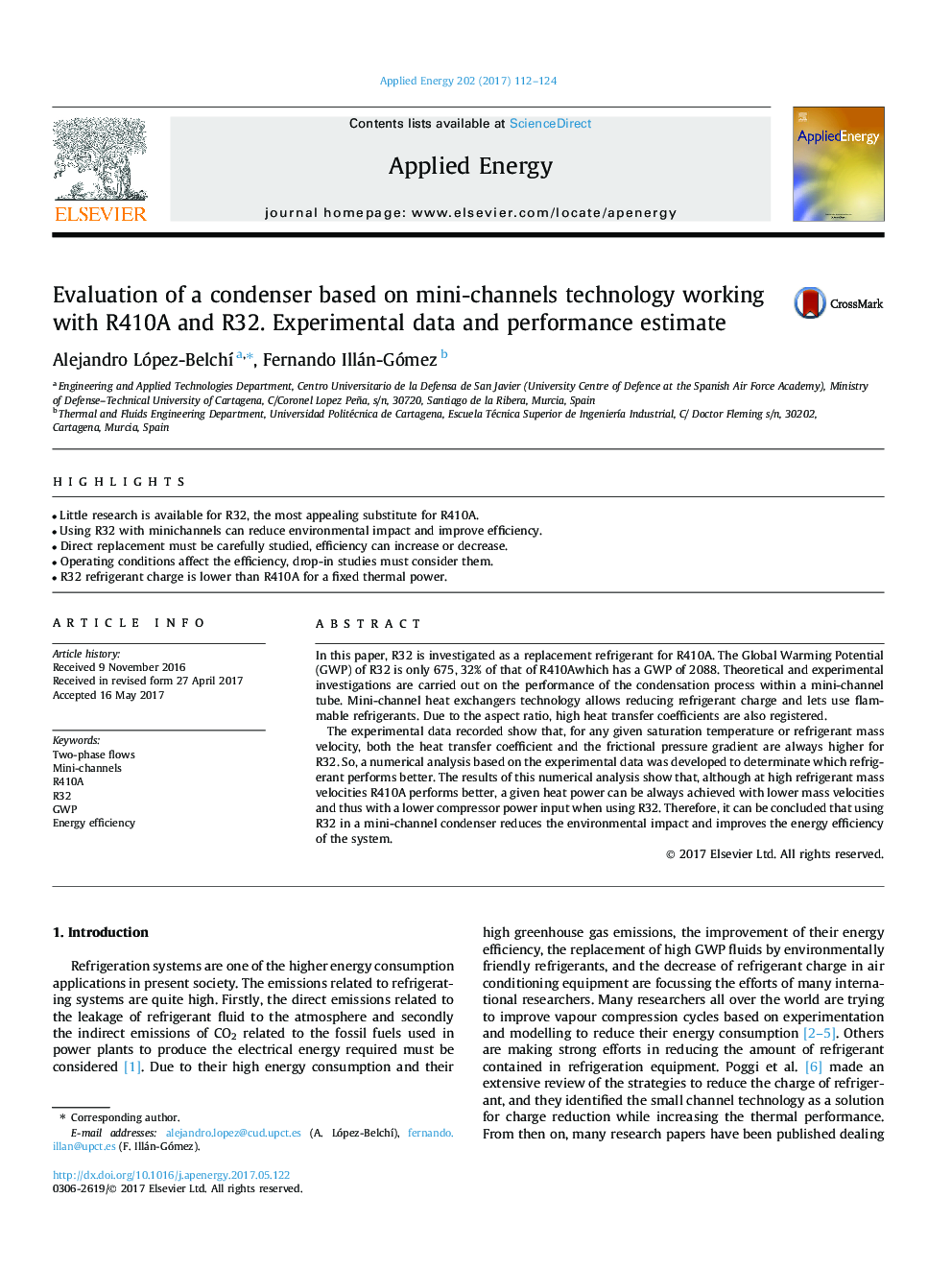| Article ID | Journal | Published Year | Pages | File Type |
|---|---|---|---|---|
| 4915938 | Applied Energy | 2017 | 13 Pages |
Abstract
The experimental data recorded show that, for any given saturation temperature or refrigerant mass velocity, both the heat transfer coefficient and the frictional pressure gradient are always higher for R32. So, a numerical analysis based on the experimental data was developed to determinate which refrigerant performs better. The results of this numerical analysis show that, although at high refrigerant mass velocities R410A performs better, a given heat power can be always achieved with lower mass velocities and thus with a lower compressor power input when using R32. Therefore, it can be concluded that using R32 in a mini-channel condenser reduces the environmental impact and improves the energy efficiency of the system.
Related Topics
Physical Sciences and Engineering
Energy
Energy Engineering and Power Technology
Authors
Alejandro López-BelchÃ, Fernando Illán-Gómez,
